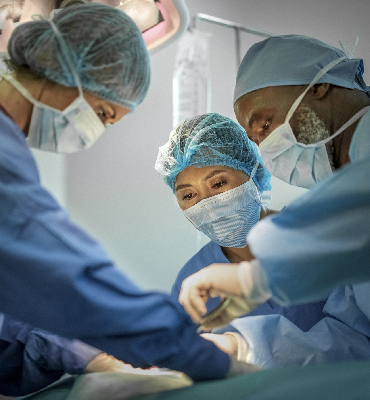
Neuro Surgery, or Neurosurgery, is a medical specialty focused on the surgical treatment of disorders affecting the brain, spinal cord, peripheral nerves, and extra-cranial cerebrovascular system. This discipline requires a high level of precision and expertise, as it deals with some of the most critical structures in the human body. Neurosurgeons perform surgeries for a wide range of conditions, including brain tumors, cerebral aneurysms, chronic pain, spinal disc herniation, spinal cord injuries, and congenital malformations like spina bifida. With advancements in medical technology, neurosurgery has evolved to include minimally invasive techniques such as endoscopic brain surgery, stereotactic radiosurgery, and microsurgery, significantly improving patient outcomes by reducing recovery times and minimizing risks.
Vihaan Hospital & Research Centre is renowned for its exceptional Neuro Surgery department, which stands at the cutting edge of treating neurological disorders through surgical intervention. Equipped with the latest in medical technology, including advanced imaging techniques and minimally invasive surgical options, the department offers comprehensive care for a wide range of conditions. From brain tumors, spinal injuries, to cerebral aneurysms, the skilled neurosurgeons at Vihaan Hospital are adept at performing complex procedures with precision and care. The department is dedicated to patient-centered approaches, ensuring personalized treatment plans that prioritize safety, recovery, and the overall well-being of patients. With a focus on innovation and excellence, Vihaan Hospital’s Neuro Surgery department is a leader in neurosurgical care, improving outcomes and enhancing the quality of life for patients.
Neuro Surgery F&Q's
Neuro Surgery, or Neurosurgery, is a medical specialty focused on the surgical treatment of disorders and injuries affecting the brain, spinal cord, and peripheral nerves. It encompasses a range of procedures aimed at addressing neurological conditions.
Conditions treated include brain tumors, cerebral aneurysms, spinal disc herniation, spinal cord injuries, stroke, congenital neurological disorders, and chronic pain conditions that require surgical intervention.
Common procedures include craniotomy (opening of the skull to access the brain), spinal fusion (joining two or more vertebrae), laminectomy (removal of a portion of the vertebral bone), and microdiscectomy (removal of herniated disc material).
Advances in technology, such as MRI and CT imaging, minimally invasive surgical techniques, and robotic-assisted surgery, have significantly improved the precision, safety, and outcomes of neurosurgical procedures, reducing recovery times and complications.
Recovery varies depending on the type of procedure and the individual’s condition. It can range from a few weeks for minimally invasive surgery to several months for more complex procedures. Rehabilitation may include physical therapy, occupational therapy, and other supportive care.
Preparation typically involves undergoing various diagnostic tests, adjusting or stopping certain medications, fasting for a specific period before the surgery, and discussing potential risks and post-surgery care with the neurosurgeon to ensure the best possible outcomes.











